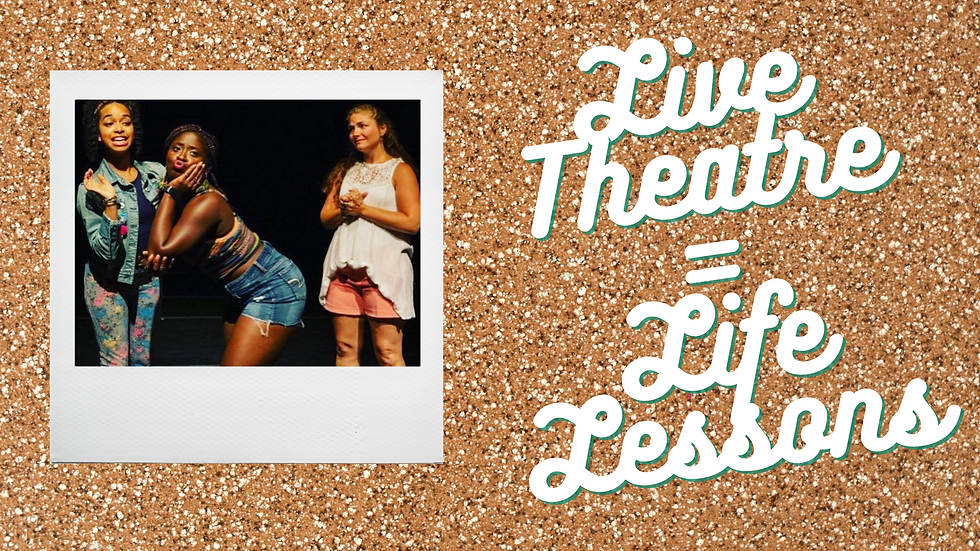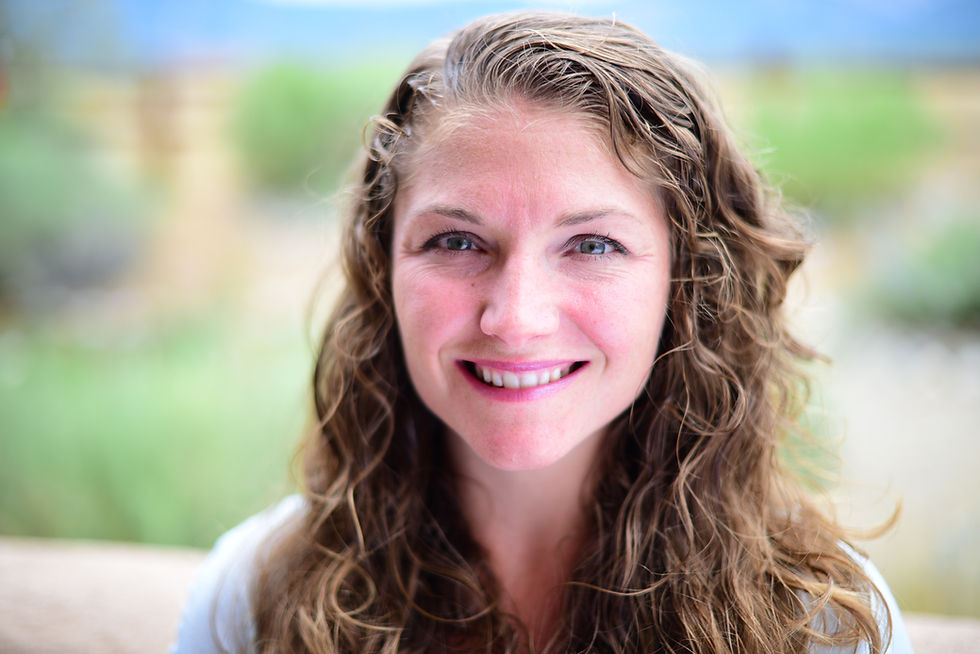A Woman - A Female - A Lady
- artsintegrator
- Mar 26, 2021
- 6 min read
Updated: Apr 16, 2021

According to Merriam-Webster the definition of a woman is,
an adult female person
distinctively feminine nature
a woman who is a servant or personal attendant
GIRLFRIEND
The definition of female is,
of, relating to, or being the sex that typically has the capacity to bear young or produce eggs.
having a gender identity that is the opposite of male
having a quality (such as small size or delicacy of sound)
designed with a hollow or groove into which a corresponding male part fits
The definition of lady is,
a woman of refinement and gentle manners
a woman who behaves in a polite way
a man's girlfriend
I beg to differ. There is so much more to being a woman, a female or a lady than outlined here in definitions that mostly highlight how women “fit” in society in comparison or relation to a man.
Growing up I was often told, “you can be anything you want”, “the skies the limit”, “a woman can do anything a man can do” … and other such cliches. What I found was these cliches were meant to be true only within the boundaries that were “appropriate for women”. Sure, you can be a businesswoman, but don’t be that loud, opinionated one that challenges the status quo. Sure, you can be an actress, but be mindful that you only choose appropriate shows to be in, no nudity, that’s not lady like. Sure, move to New York and get a taste if diversity and cultural, but don’t forget where you come from and what a women’s place is in society.
I knew in my gut that I actually could be anything I wanted and that I could choose to make my way as I saw fit. Like it or not, that is the strong-minded feminist that grew out of the Texas dust. The reason I knew this is because I saw it right before my eyes in the strong female stories that were being cultivated in the theatre. Maggie the Cat, Sally Bowles, Corrie Bratter, Beneatha, Celie, Eva Peron, Mother Courage, The Vanities trio, Polly Baker, Violet and Daisy Hilton, Roxie, and Velma… the list can continue, but in my youth, these were the ones that I connected with. Notice, several of these are based on real live women. Imagine! A woman leading a life interesting enough to share their stories on stage. Crazy!
I digress. The connection here is story. If these stories could make it to Broadway, then there must be more of them. I must not be alone. There must be lots of women out there that are battling the internal fight between family, home, culture, expectations and their dreams, their longing, and knowing there is more. I was right. I sought out and found those kindred spirits. They came in the form of playwrights like Loraine Hansberry, Suzan-Lori Parks, Caryl Churchill, Sarah Ruhl, Wendy Wasserstein, Yasmina Reza, and Naomi Iizuka. The came in the form of artists like Frida Kahlo, Gentileschi, Morisot, Tamara De Lempicka, Georgia O’Keeffe, and Kara Walker. They came in the form of female activists that spoke loud and proud like Eleanor Roosevelt, Gloria Steinem, Angela Davis, Jane Fonda, Maya Angelou, RBG, Malala, Chimamanda Ngozi Adichie and so many more. By jumping into the feminine rabbit hole, I discovered a new world full of like-minded people, both male and female mind you that I could begin to have these difficult conversations with, ask challenging questions, understand my own biases, and begin to make change, first from within and then in the world.
I was often the young women who would declare that “I don’t have many women friends”, “I don’t get along with girls”, “girls like too much drama” … What I came to realize was that many of these emotions and feelings stemmed from battling the expectation of what my focus as a woman “should be” with the reality of my personal truth. Most of the young women I was around at a young age were battling the same thing, but we didn’t talk about it, we didn’t dig deeper, we fell into the mold that had been created for us and thus fell into the pattern of competing for attention, trying to one up one another, tearing one another down rather than lifting one another up. This is a horrible cultural trend that has continued to be cultivated, especially in more “traditional” communities. While there is something incredibly beautiful about a woman knowing that they want to get married, be a mother, and raise the next generation of souls, that is not the end all, be all of a successful existence for a woman. Quite frankly, most of the mothers I know also happen to be brilliant artists, businesswomen, educators… and they share their passions and goals with their kids which models what is possible for the next generation. Now that is powerful stuff! These women are raising feminists. These women are bringing up their young men and young women to live by those clichés I was taught, but they know they are real and possible.
Live theatre has taught be so many life lessons over the years, but I think this one is one of the most important and long lasting. You are not alone! There are others that have similar stories, experiences, emotions, and struggles. The more we talk about what is seen to be taboo the more we normalize it and help the next generation not feel so alone. I have had the opportunity to use theatre as a catalyst for addressing a variety of social issues over the years both professionally and in the education realm. One of the most powerful was a little devised project called, “Think Before you Holla”. The project was directed and guided by the dynamic Taylor Reynolds of The Movement Theatre Company. Taylor gathered and inspired a strong, diverse group of women as we worked for over two years to research, share stories, improv, move, ask questions, and articulate the action of cat calling, the power of the oppressor, and the struggle of the oppressed. This was not an easy piece to work on. Every rehearsal we were stripped down to the core in order to create a piece that was honest, asked difficult questions, and asked the audience to take action to promote change. When we performed at the Capital Fringe Festival in D.C. the response was potent. So many women feeling safe to share their stories. So many men recognizing how they have perpetuated this action and often watched it and never stood up to their peers to say stop, this is wrong. While our reach may not have been massive, it was massive for those we did reach and that creates a momentum, a domino effect, an opening to start talking about those things which often get swept under the table. Just look at the movements that have evolved in our country over the past few years. The Women’s March, Kamala Harris, Emmanuelle Charpentier and Jennifer A. Doudna were awarded the Nobel Prize in Chemistry, women are calling out men of power on their sexual harassment etc.…
According to Dr. Laurel Weldon — a political science professor at Simon Fraser University, feminist mobilization has advanced policies to strengthen women's opportunities, such as:
More equal opportunities in the workplace.
Laws expanding women's access to financial accounts.
Laws supporting women's inheritance rights.
Laws protecting women against sexual harassment.
While a lot has changed since my first awareness of feminine equality or lack thereof, much has remained the same. In a conversation with my Dad the other night he made an inappropriate comment about a woman in power. This is not the first time he has generalized a dislike or downright hate for this person and used stereotyping and offensive language to communicate as such. This is also not the first time I said to him, “if you do not agree with their actions or ideas then we can talk about that, but I will not engage in conversation where you are judging those actions and ideas based on them being female.” To which he replied, “calm down young lady”. I’m 42. My next tactic was to ask him to think about me before he made those comments, “how would he feel if someone said the same thing about me?” I guess my voice was fueled with passion at this point, and yes anger and frustration. The final response I received from him was, “you need to get your hormones under control.” At that point I said something inappropriate myself and hung up. These interchanges are hard. They hurt. I’m still relaying the exchange in my mind, trying to figure out what else I could have said to make him see, to make him see me, not just his daughter, a woman whose hormones are out of whack and out of control, but a human, an individual that he just hurt, disrespected, and offended. That my response was to his words, his actions and not because I can’t control my emotions. The saving grace here is that I know I am not alone. I know I am not the only one battling this out with family, with colleagues, and with society. I have seen similar exchanges on stage, heard them in song, displayed in art, and shared in story. There is a constant anxiety that I walk around with as a woman. Will I be attacked? Am I strong enough to fight back? Can I make myself heard? How many jobs will I lose out on because I am a woman? Am I alone? While I don’t have the answers, I can control how I choose to navigate the challenges and I can use the lessons I have learned in theatre, the arts, and beyond to curate MY definition of what it is to be a woman, a female, and a lady.


Comentários